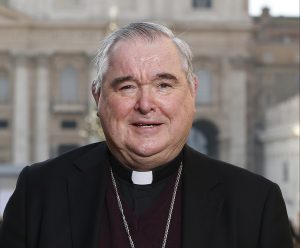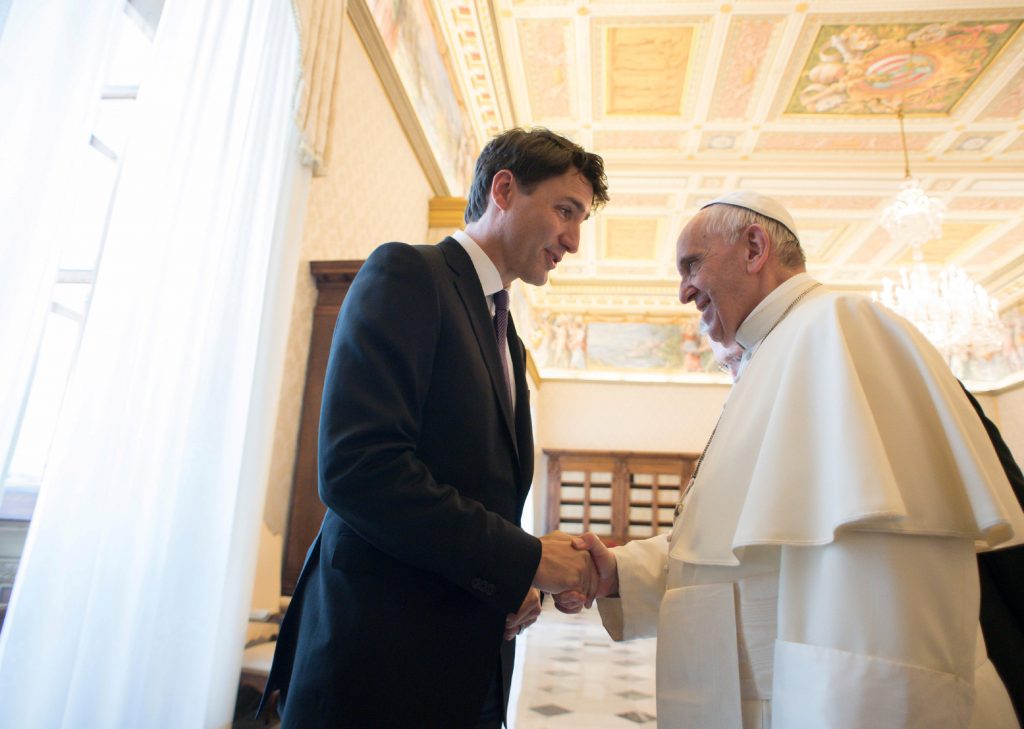Canada could be set to become the first country outside of Europe to allow physician-assisted suicide and euthanasia for mental conditions.
This move has happened lightning fast. Just five months ago, the Quebec Superior Court struck down a requirement that those seeking medically assisted suicide, legal in Canada since 2016, have a terminal condition.
The Canadian government held a two-week online consultation on the subject of expanding the use of Medical Assistance in Dying (MAID); yes, the official government acronym is a person you pay to clean up a mess. Justice Minister David Lametti told the CBC, “Canadians are largely in agreement that we ought to expand the possibility for medical assistance in dying beyond the end-of-life scenario.”
When asked about the possibility of psychiatric patients, those suffering from depression, for example, Lametti said that “certainly is a possibility that’s raised by this expansion.”
The Canadian bishops were quick to react.
Archbishop Richard Gagnon of Winnipeg, Manitoba, president of the Canadian Conference of Catholic Bishops, wrote to Canadian Prime Minister Justin Trudeau, calling the developments “deeply troubling.”
“Further attempts to make it available to mature minors, the mentally ill, and the cognitively impaired are evidence that the current safeguards are inadequate and can be legally challenged and overturned,” Archbishop Gagnon wrote.
“The dangers we see now in Canada, and those that can be foreseen by experiences elsewhere (including euthanasia for depression, child euthanasia, and elder abuse) are shocking and disturbing, and have no place in any society.”

Catholics are the largest religious group in Canada, making up nearly 39% of the population, almost twice the percentage in the United States. In Quebec, Catholics make up nearly 75% of the population.
Yet the voice of the bishops seems to be carrying very little weight with the Canadian government.
Part of the reason is because Trudeau’s Liberal Party generally comes on the other side of life issues than the Church; his government didn’t appeal the court’s euthanasia decision, even though it technically lost the case.
However, there is another factor at play: namely, that Canada’s strong Catholic heritage can ironically work against efforts to promote life issues as the country embraces secularization.
This can be seen especially in ground-zero of the euthanasia revolution: Belgium.
Speaking to Crux in 2018, Dr. Mark Komrad, a clinical psychiatrist and an ethicist who is on the teaching faculty of the Department of Psychiatry at Johns Hopkins, said that in Belgium secularism began defining itself as “specifically a rejection of its long historical Catholic character and roots.”
Komrad, who isn’t Catholic, said as far as the secularists are concerned, “it is the same tired arguments that do not stand up to the modernist, liberal apotheosis of autonomy and self-determination, which elevates those values so that they trump all other values, especially the dignity and preciousness of life.”
Komrad said any attempt to defend the preciousness of life in Belgium “apparently gets one accused of being a Catholic, a crypto-Catholic, or unduly influenced by the residuum of the Catholic legacy.
“Objectors are not getting with the program of this ‘moral pioneering’ that the secularists feel they are accomplishing in Belgium to promote people’s autonomy and self-determination: a showcase of those values to the world,” he said.
The same attitudes seem to be at play in Canada, and the other countries where euthanasia — where the doctor is involved in the direct killing of patients — is legal: Netherlands, Belgium, Colombia, and Luxembourg. All but the Netherlands are majority Catholic, but the Dutch Church has always played a significant role in the life of the country.
(Assisted suicide, where the patient administers the lethal dosage under medical supervision, is legal in Switzerland and Germany, as well as the U.S. states of Washington, Oregon, Colorado, Hawaii, Vermont, Montana, New Jersey, California, Maine, and the District of Columbia.)
In other words, in “post-Catholic” countries, modern medical ethics is almost defined as trying to be the opposite of what the Church teaches.
One solution is to try and reframe the debate in a terminology with which secularists are comfortable, which is a path often taken by Pope Francis.
The Holy Father often speaks out strongly against any form of medically assisted dying, especially when speaking to medical personnel.
Although the pontiff is quick to point to the theological reasons the Church is opposed to such practices, he also uses language meant to prick the conscience of the secularist mind.
Pope Francis frequently speaks of a “throwaway culture” using “false compassion” to “discard” those who are ill or otherwise infirm.
“The practice of euthanasia, which is already legal in several states, only seemingly aims to encourage personal freedom; in reality it is based on a utilitarian view of the person, who becomes useless or is regarded as an expense if, from the medical point of view, he or she has no hope of improvement or can no longer escape pain,” the pope said Sept. 2, 2019.
“On the contrary, the commitment to accompany patients and their loved ones throughout all stages of the journey, seeking to alleviate their suffering through palliative care or by offering a family environment in hospices, which are increasingly numerous, contributes to creating a culture and practice more attentive to the value of each person.”
Hopefully, it’s the kind of language 21st-century politicians will be able to appreciate.

